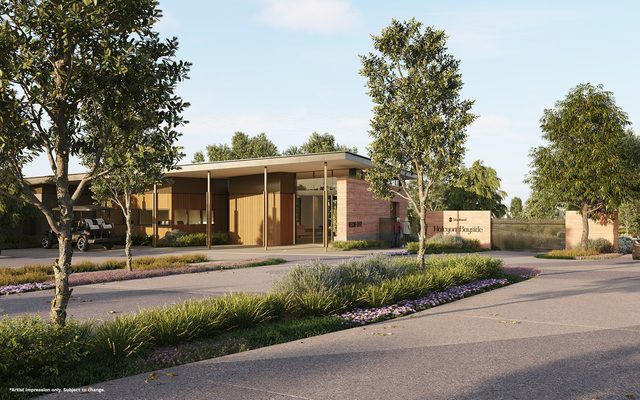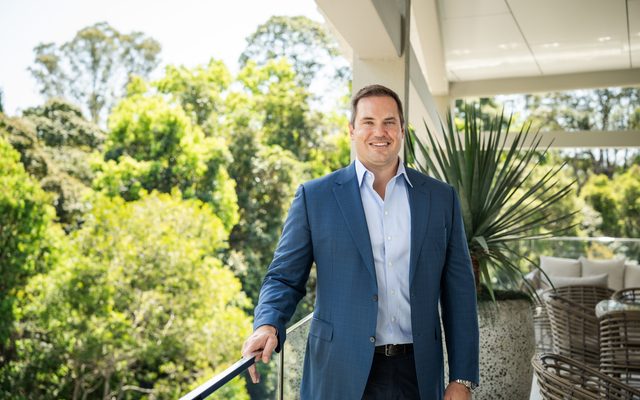This article is from the Australian Property Journal archive
STOCKLAND funds from operations (FFO) fell by 25% in the first half as residential settlements across its master-planned communities dried up, but sales have been gathering momentum as interest rates stabilise.
Overall FFO fell to $353 million from $266 million on the prior corresponding period (pcp), as FFO at its master-planned communities dropped to $40 million from $113 million. Settlement volumes fell to 1,614 from 1,872.
However, new residential sales rose to 2,172 lots compared to 1,804 on the pcp.
Stockland CEO, development, Andrew Whitson said, “The stabilisation of the interest rate environment has led to improvements in net sales and enquiries in 2Q24.”
“Positive momentum has continued in January 2024, with net sales of 371 compared with 343 sales in January 2023, and enquiries up 23% year-on-year.”
“While differences in the availability of supply, interstate migration and affordability are driving mixed performance across residential corridors in the shorter term, the structural drivers for the residential market remain supportive. These include resilient labour markets, elevated net overseas migration levels, and low rental vacancy rates in an environment where housing supply remains constrained.”
Stockland reaffirmed its full-year FFO per security guidance at a range of 34.5c to 35.5c on a pre-tax basis.
During the first half Stockland partnered with Supalai for the $1.06 billion acquisition of 12 actively trading master-planned communities from Lendlease.
“The acquisition represents a strategic restocking of our pipeline and increases our capital allocation to the residential sector, consistent with our focus on deploying capital towards our targeted growth sectors,” said Stockland’s managing director and CEO, Tarun Gupta.
“We are seeing early signs of improvement in residential markets and are positioning our master-planned communities and land-lease communities businesses for increased production rates to meet demand in future periods.”
Stockland expects the transaction to be accretive to FFO per security from FY25.
In the current half, Stockland put the historic Clydesdale Estate in Marsden Park on the market, just days after launching a new residential project in the north west Sydney suburb.
It has also launched four Victorian communities in recent months.
Stockland’s commercial property segment FFO dipped 3% to $329 million. About 69% of the portfolio has independently revalued in the half, with a 0.5% or $51 million increase on previous book values, which it said reflected the softer capitalisation rate environment, partially offset by strong income growth.
The $3.7 billion logistics portfolio delivered FFO of $80 million, up 20.1%, and comparable FFO growth of 6.0% as warehouses continued to outperform other bricks and mortar assets. Re-leasing spreads on new leases and renewals negotiated over the period increased to 39.6%, up from 23.9%.
Revaluations delivered a net valuation gain of $70 million, or 2.1%, with the 46 basis-point softening in the portfolio’s weighted average cap rate “more than offset” by strong income growth.
The group has a $6.5 billion logistics development pipeline. A majority of the $1.1 billion active pipeline is expected to commence construction during the current financial year.
Stockland is positioning the majority of its $1.9 billion workplace portfolio for future mixed-use opportunities. The portfolio delivered FFO of $57 million, up 6.9%, and comparable FFO growth of 2.8% driven by rental escalations on existing leases.
Valuation declined by 4.1%, or $79 million, reflecting 23 basis points of cap rate expansion.
Its portfolio of shopping centres delivered a 0.9% increase in FFO to $187 million. Comparable FFO slowed to 2.1% from 5.0%.
Leasing spreads accelerated from 2.5% to 3.5%, and occupancy levels were maintained above 99%.
On a moving annual turnover basis, total comparable sales grew 5.4% and comparable specialty sales by 2.6%.




